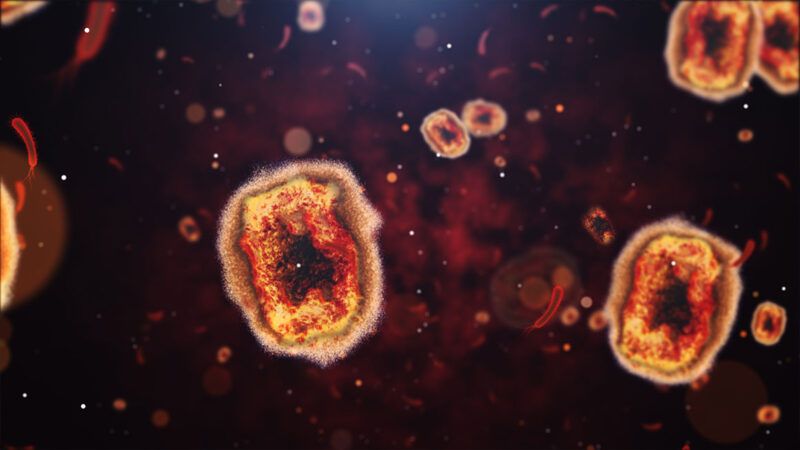The Feds Monkey Around With Monkeypox
The FDA delayed the delivery of 1 million vaccine doses, and many high-risk Americans were turned away from health clinics that had run out of vaccines.

Monkeypox is relatively hard to catch and rarely kills, but infection can be a miserable experience. In addition to fever, chills, muscle aches, and exhaustion, people infected with monkeypox often have to endure painful rashes and lesions that can last up to a month and spread the disease to others.
By comparison, COVID-19, while also relatively rarely fatal and frequently mild, was contagious enough that it killed large numbers of people in vulnerable groups. But monkeypox's less lethal impact does not explain why federal health officials have responded to the virus with such ineptitude, especially after their experience with disastrous COVID-19 missteps.
Beginning in May 2022, a new monkeypox outbreak spread across Europe, the United States, and eventually the world. Initial cases were diagnosed in England, first spread by a British traveler who had returned from Nigeria. The first case in the U.S. was documented in Boston on May 19. As of August 18, there were more than 14,000 documented cases in the United States. There were more than 40,000 infections across 94 countries.
The Food and Drug Administration (FDA) has approved a vaccine called Jynneos to treat both monkeypox and smallpox. The U.S. had more than 1 million doses, stored in Denmark. But the federal government could not quickly transport the vaccine to the United States because the facility where it was stored had not been inspected by U.S. officials. Although European agencies had inspected it, the FDA would not accept those independent results. Even as the virus began to spread in the United States, FDA officials insisted on performing their own inspection, which delayed importation.
Worse, The New York Times discovered that the Department of Health and Human Services (HHS) slow-walked its entire response to monkeypox's arrival in the United States. Even after FDA inspection made 300,000 doses of vaccine available, most of them did not arrive until mid-July, and it wasn't until the very end of July that local health agencies could start requesting the additional 786,000 doses that were finally being delivered to the United States.
Even after the first monkeypox cases were diagnosed in the U.S., HHS officials let more than 200,000 doses that the department had bought go to European countries instead. Meanwhile, many Americans in high-risk categories (most prominently, men who have sex with men) were turned away from health clinics that had run out of vaccines.
If federal health officials learned anything from COVID-19, they have not yet figured out how to apply that knowledge.
This article originally appeared in print under the headline "The FEDS Monkey Around With Monkeypox."


Show Comments (28)